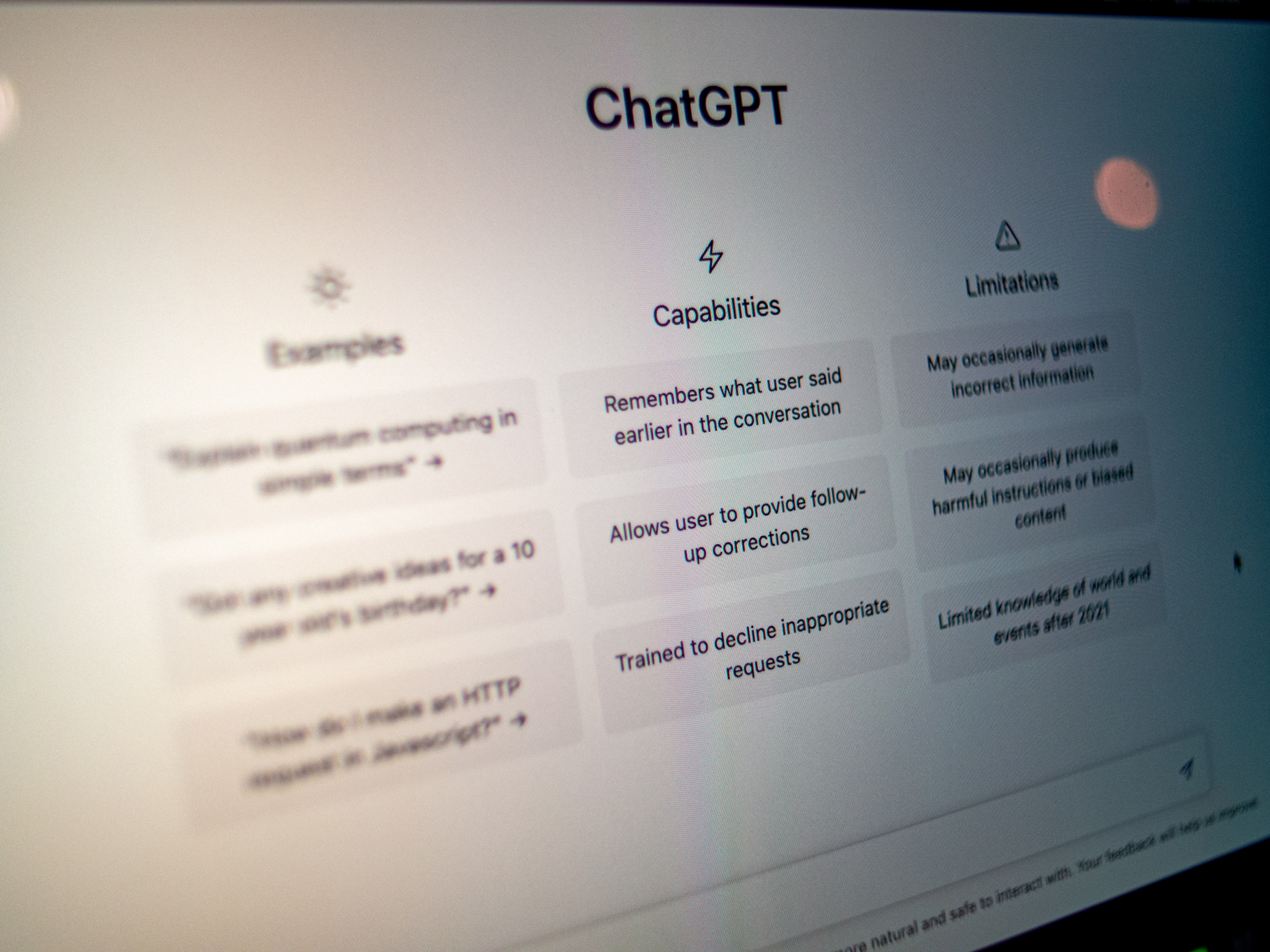Published on: October 11, 2023
Artificial Intelligence Marketing Tools (What you need to know in 2023)
Author: Lauren Smith

As the world of marketing continues to evolve, the use of artificial intelligence is rapidly becoming a vital component of effective marketing strategies. By leveraging the immense power of AI marketing tools, businesses of all sizes can improve their customer experience, enhance personalization and targeting, and make data-driven decisions that increase efficiency and cost savings.
To make sure that we cover everything you need to know about these tools, here’s what we’re about to explore:
- Understanding AI in marketing
- What is AI marketing?
- The evolution of AI in marketing strategies
- Key components of an AI marketing tool
- Benefits of implementing an AI marketing tool
- Popular AI marketing tools and platforms
- Integrating AI-powered tools into your marketing strategy
- Overcoming challenges and ethical considerations
- Staying ahead of AI marketing trends
Understanding artificial intelligence in marketing
AI has been around for decades, but only in recent years has it been fully integrated into the marketing sector. AI provides advanced technologies that can help businesses make better decisions, predict target audiences, and improve customer engagement. In the field of marketing, AI can assist by analyzing data and better-targeting consumers and customer behavior.

With the rise of AI in marketing, businesses can now analyze vast amounts of data in a matter of seconds. This allows them to gain useful insights into customer behavior and preferences, which in turn enables them to create more effective marketing campaigns. By incorporating AI, businesses can also automate many of their marketing processes, reducing the need for human intervention and freeing up resources for other important tasks.
What is artificial intelligence marketing?
In simple terms, Artificial Intelligence Marketing or AIM refers to the use of AI technologies in order to automate or optimize marketing processes. AIM encompasses a wide range of activities, including targeted advertising, consumer behavioral analysis, lead generation, and even content creation. AIM understands audience behavior, tendencies, and the need to create and deliver the right message at the right time.
One of the key benefits of AIM is that it helps businesses personalize their marketing efforts. By analyzing customer data, businesses can create highly personalized marketing campaigns that better reach their target audience. This not only improves the effectiveness of things like AI email marketing tools, product descriptions, content strategy, and market research but also helps to build stronger relationships with customers.
The evolution of AI in marketing strategy
The development of ever more powerful AI and machine learning (ML) tools has fundamentally transformed the way that marketing professionals approach their work. Today, marketing agencies of all sizes and niches can leverage innovative AI tools that allow them to gain a more comprehensive understanding of their target audiences, create more effective and engaging content, and make data-driven decisions that improve ROI and increase efficiency.
The good news as well is that small businesses and individuals no longer need to rely on an AI marketing agency if there isn’t room in the budget. Instead, with the right AI marketing tool (or tools), small businesses can take charge of their marketing strategies themselves. But if you’re interested in hiring an AI marketing agency, check out our blog on the 9 best AI marketing companies.

One of the most significant changes that AI has brought to marketing is the ability to analyze customer sentiment. By analyzing social media posts, reviews, and other forms of customer feedback, businesses can gain insights into how their customers feel about their products or services. This information can then be used to make improvements and adjustments to marketing campaigns, resulting in better customer experiences and increased customer loyalty, not to mention better conversion rates.
Key components of an AI marketing tool
These tools are an incredibly varied and diverse group of technologies that all share one common goal – to make marketing more efficient and impactful. Key components of AIM tools include predictive analytics, machine learning, data management, automated customer service, chatbots, and content optimization, among others.
Predictive analytics is one of the most important components of AIM. By reviewing customer data, businesses can use predictive analytics to forecast customer behavior and preferences, so it will be much easier to develop campaigns and an overall strategy. Machine learning is another key component of AIM, allowing businesses to automate many of their marketing tasks so that they can focus on other more high-level pursuits.

Data management is also critical in AIM, as it allows businesses to collect, store, and analyze vast amounts of customer data. Automated customer service, AI email marketing tools, and chatbots are also essential components of AIM, allowing businesses to provide more personalized and useful customer service to their customers.
Finally, content optimization is another critical component of AIM. With the help of AI, businesses can optimize their content to ensure that it works for their target audience based on the analysis of preferences and behavior. This can include everything from website copy, landing pages, and blog posts to social media updates and email marketing campaigns.
Benefits of implementing an AI marketing tool
The world of marketing is constantly evolving, and with the advent of AI, marketers have access to a whole new suite of tools that can help them stay ahead of the curve. From improved customer experiences to enhanced personalization and targeting, AI marketing tools are truly changing the way companies approach their marketing strategies. Let’s take a closer look at some of the key benefits of implementing an AI tool to help with marketing efforts.
Improved customer experience
One of the main advantages of these tools is their ability to provide unparalleled insights into customer behavior. In the past, this information was only available through tedious tasks like surveys resulting in a bunch of data that would need to be mined and analyzed manually.
By leveraging powerful AI technologies, marketers can gain a comprehensive understanding of the customer experience, improve customer service, and adjust all marketing efforts to be perfectly in line with their target market’s needs. For example, AI-powered chatbots can provide customers with instant support and personalized recommendations, leading to a more positive customer experience.

Moreover, AI can help companies identify customer pain points and address them proactively. By analyzing customer data, marketers can zero in on areas where customers are experiencing difficulty and take steps to alleviate those issues. This not only improves the customer experience but also helps to build brand loyalty and increase customer retention.
Enhanced personalization and targeting
With the help of ML technology, AIM tools can deliver hyper-personalized content that reflects individual customer preferences, needs, and behaviors. This translates into a more engaging and meaningful experience for the customer, which can lead to greater loyalty and repeat business for the company.
For example, AI can be used to review customer-specific data and create personalized product recommendations based on their past purchases and browsing behavior. This not only helps to increase sales but also improves the overall customer experience by providing relevant and useful information to the customer.
Data-driven decision-making
An AI marketing tool can provide essential data insights that enable marketers to make more informed decisions about their campaigns. By leveraging data and using predictive analytics tools, companies can anticipate customer behavior and make better decisions that lead to improved ROI and marketing strategy alignment.
For marketing agencies, for example, AI can be used to analyze consumer data and identify patterns and trends that can impact marketing campaigns. This includes identifying the best channels for reaching specific audiences, optimizing ad spend, and determining the best times to launch campaigns.
Increased efficiency and cost savings
The use of AI marketing software can significantly reduce the time, resources, and human effort required to execute complex marketing campaigns. By automating routine tasks and using data insights to optimize campaign elements, companies, individuals, and AI marketing agencies can save money, improve efficiency, and focus on more strategic initiatives.

For example, AI can be used to automate an email marketing campaign, freeing up marketers’ time to focus more on strategic or creative tasks. AI technology can also be used to optimize ad spend by identifying the most effective channels for reaching select audiences, reducing wasted ad spend, and increasing ROI.
Overall, the benefits of implementing any AI-powered marketing tool are clear. By taking advantage of the software’s powerful underlying technologies, companies can improve the customer experience, enhance personalization and targeting, make data-driven decisions, and increase efficiency and cost savings. As the world of marketing continues to evolve, AI will undoubtedly play an increasingly important role in helping companies stay on top.
Popular types of AI-powered marketing tools
Here are a few of the different options available to help you with your marketing endeavors.
Chatbots and conversational AI
Chatbots are a popular example of marketing tools as they help answer customer inquiries and streamline interactions. By utilizing AI-powered chatbots, companies can deliver more efficient and personalized customer support experiences that improve customer satisfaction and loyalty.
For instance, chatbots can be programmed to provide real-time responses to frequently asked questions, freeing up customer service representatives to handle more complex queries. Additionally, chatbots can be used to personalize marketing messages and promotions based on a customer’s browsing and purchase history.
Conversational AI, on the other hand, takes chatbots to the next level by enabling more natural and human-like interactions. By using natural language processing (NLP) and ML algorithms, conversational AI can understand and respond to customer queries in a more conversational tone. This makes it easier for customers to engage with a brand and can lead to increased customer satisfaction.

Predictive Analytics Tools
Predictive analytics is an incredibly powerful AI technology that allows businesses to anticipate customer behavior and adjust marketing strategies accordingly. By using ML algorithms to parse immense amounts of data, companies can understand customer behavior patterns and improve targeting with targeted marketing messages.
For instance, predictive analytics tools can be used to identify customers who are most likely to churn and target them with personalized retention offers. Similarly, these tools can be used to identify customers who are the most likely to make a purchase. Then they can target them with relevant product recommendations and promotions.
Content generation and optimization
AI-powered copywriting tools allow businesses to create and refine engaging content that’s in line with their brand and useful or engaging to their target customers. By analyzing customer reactions and behavior to webpages, companies can optimize their messaging, imagery, and other content elements for maximum impact and engagement.
Customer engagement based on content types, such as blog posts, videos, and images or infographics, can be analyzed with an AI tool. This can help businesses identify which types of content typically drive the most engagement and adjust their content strategy accordingly.
There is a whole subset of specific tools that can help you with effective AI-based content creation. If you often create large amounts of written content, you may want to pair your marketing-specific tool with one of these more specialized programs.

Social media monitoring and management
Social media has become a crucial marketing channel for businesses of all sizes. Using social media monitoring tools, anyone can analyze customer sentiment and behavior on social media platforms to improve messaging and overall strategy.
AI provides businesses with alerts about potential opportunities and risks, as well as suggestions for how best to use social media platforms to engage with target audiences. For instance, AI can easily identify trending hashtags and topics that are relevant to a brand’s target audience. This can help businesses create more engaging social media content that speaks to their followers.
AI-powered marketing tools and platforms are changing the way businesses approach customer engagement and marketing. The results are deeper insights into customer behavior and preferences and more personalized and effective marketing campaigns.
Integrating AI-powered marketing tools into your strategy
Adding a new marketing tool to your arsenal and implementing it can be daunting. Here are some tips to help you get started:
Assessing your current marketing efforts
Before integrating AI marketing tools into your social media marketing and strategy, it’s important to evaluate your current strategy and the data you have on your target audience. Self-evaluate and reflect on what is and what is not working.
For example, are your current marketing efforts generating the desired results? Are you getting the expected ROI? Is your marketing strategy personalized for your target audience? These are some of the questions you should ask yourself when assessing your current marketing efforts.
Identify areas that are currently lacking or could benefit from automation, optimization, or personalization. This will help you determine where AI marketing tools can be most effective in things like your content writing, Google Ads, email campaigns, etc.

Identifying opportunities for AI implementation
Once you have identified the gaps and opportunities to optimize, it’s essential to investigate what AI marketing tool will best fit your business model. Research and determine which tools have the features that best align with your strategy.
For example, if you are a B2B company that relies heavily on lead generation, you may want to consider AI-powered lead generation tools. These tools can help you identify high-quality leads and personalize your outreach to them.
On the other hand, if you are an e-commerce business, you may want to consider AI-powered product recommendation engines. These engines can analyze customer data to recommend products that are most likely to be of interest to each individual customer.
Selecting the right AI tools
When selecting AIM tools, consider your business model, budget, and long-term goals. Look for tools that are easy to integrate with your current systems and that offer actionable insights.
If you are a small business with a limited budget, you may want to consider free or low-cost AI marketing tools. Many tools offer free or trial versions of their software, which can help you determine if they fulfill the unique needs of your business.
It’s also important to consider the ease of use of the tool. Look for tools that are user-friendly and require minimal training to use effectively.
Measuring success and ROI
Once you’ve implemented AI marketing tools, it’s important to monitor their effectiveness and measure their impact on your business strategy. Define clear measurable outcomes and ensure the AI marketing tools deployed are contributing to increased ROI.
If you implemented an AI-powered lead generation tool, track the number of high-quality leads generated and the conversion rate of those leads. If you implemented an AI-powered product recommendation engine, track the increase in sales and customer satisfaction.
By measuring the success and ROI of your AI marketing tools, you can determine if they are worth the investment and make adjustments to your strategy as needed.

Overcoming challenges and ethical considerations
AI tools are becoming more and more powerful. However, with this power comes a certain amount of responsibility. Companies must prioritize ethical considerations to ensure the responsible use of AI marketing tools.
Data privacy and security
One of the most significant ethical considerations in AI marketing is data privacy and security. Customers expect their personal information to be treated with the utmost care and respect. Companies must implement security measures to protect customer data from cyber threats and ensure that their ethical values align with their clients and customers’ privacy preferences.
Implementing security measures should start right from the day you integrate your AI tools. This includes encrypting data, limiting access to sensitive information, and regularly monitoring for potential breaches. Businesses must also be transparent about how they collect and use data and provide customers with the ability to opt out of data collection.
Bias and fairness in AI algorithms
AI algorithms, like people, are susceptible to bias. AI bias could lead to the unfair disadvantage of certain audiences, for example, depending on ethnicity, race, or even location. Companies must be cognizant of these biases and ensure AI algorithms align with company values.

To mitigate bias in AI algorithms, companies must first identify potential biases in their data. This can be achieved by analyzing data for patterns that may lead to unfair outcomes. Once identified, businesses can take steps to eliminate bias, such as collecting more diverse data or adjusting algorithms to account for bias.
Balancing automation and human touch
By using AIM technologies, businesses can achieve a higher degree of automation and reduce human intervention. However, there is a balancing act that businesses must implement to ensure the human touch remains and enhances AI-powered interactions.
Businesses must ensure their AIM strategy includes human touch-points and promotes prompt human intervention when required. For example, if a customer is experiencing an issue that cannot be resolved by AI, the system should quickly connect them with a human representative. This approach will help businesses provide personalized experiences while maintaining the human touch that customers expect.
Staying ahead of AI marketing trends
The field of AI marketing is evolving rapidly, and businesses must keep up with both the latest technological developments and changing consumer preferences. It’s essential to stay informed about what’s new in AI marketing and continually update and refine your strategies to stay ahead of the competition.
Businesses can stay ahead of AI marketing trends by attending industry conferences, networking with peers, and investing in ongoing training and development for their marketing teams and their employees. By staying up-to-date on the latest industry trends and innovations, businesses can continue to provide their customers with personalized experiences that drive engagement and loyalty.

Conclusion
There is little doubt that AI marketing tools hold the key to unlocking more effective, efficient, and impactful marketing strategies. By leveraging the incredible power of AI, businesses can gain unprecedented insights into their target audiences, optimize their campaigns for maximum impact, and create hyper-personalized content that engages and delights their customers.
While there are challenges and ethical considerations to be addressed, the benefits of these tools far outweigh any risks or uncertainties. It’s time to embrace the immense potential of AI and lead the way in delivering exceptional customer experiences that drive business success.
Lauren Smith
TopApps writer
Recent Articles

In 2024, your smartphone camera is about to get a whole lot smarter. AI camera apps are transforming the way we capture and...
Read More
Learn how to use advanced search tools, newsletters, and reviews to uncover the perfect AI-focused podcast for you.
Read More
AI chatbot vs virtual assistant? who reigns supreme? We're dissecting the differences, strengths, and weaknesses, using data-driven insights.
Read More